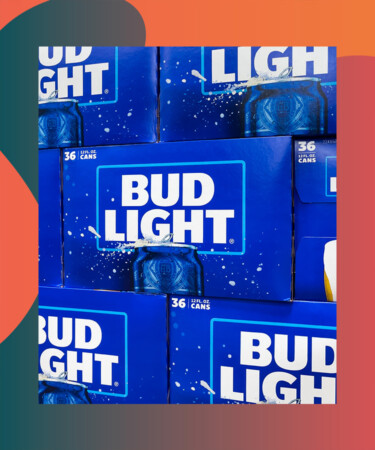Budweiser’s parent company is now buying back cases of Bud Light from wholesalers, according to the Wall Street Journal. Anhueuser-Bush told wholesalers in a recent memo that the company would purchase back unsold, expired products.
AB InBev’s client list includes 385 independent distributors across the United States, many of whom personally experienced harassment and transphobic attacks while transporting or selling Anheuser-Busch products. In the weeks since the April boycott driven by conservatives, AB InBev has launched significant consumer rebates, promotions, and wholesaler incentives in an attempt to win back its shrinking base.
Delivery truck drivers — many of whose trucks feature the Bud Light brand name — were reportedly offered up to a $500 bonus.
AB InBev has also angered LGBTQ activists and organizations over its lukewarm response to the boycott, which failed to defend the LGBTQ+ community and the trans influencer who faced with online transphobic attacks after posting a personalized gift from the brand. Advocacy group The Human Rights Campaign has subsequently revoked Bud Light’s high rating for LGBTQ equality and inclusion this month, according to the Associated Press. Bud Light was previously awarded the organization’s top honor for its commitment to LGBTQ+ inclusion in advertising campaigns and office culture.
Bud Light pivoted its marketing strategy and staff lineup in the past month after the highly-publicized conservative boycott, placing two connected employees on leave and promoting an industry veteran to vice president of marketing. AB InBev also tripled its marketing budget for Bud Light amid sliding sales, as the Associated Press reports.
VP Pro Take
Costs continue to mount for AB InBev as it navigates the ongoing boycott and resulting shrinking sales. Yet, the buy-back situation actually isn’t uncommon among beer brands and wholesalers, nor is it inherently illegal, as Seventh Point Analytic Consulting chief economist Michael Uhrich explains.
“It’s not atypical for brewers to buy back unsold beer in the case that something went wrong with either the product itself (e.g., a defective product), some logistical issue (e.g., the product arrived too late to be used), or in the case of some problem with the brand, as in the current situation. As I understand it, buy-backs like this are legal as long as there was no agreement to buy-back the product at the time of purchase. In this case, AB would have no trouble demonstrating that they never promised or intended to repurchase the unsold Bud Light.”
This story is a part of VP Pro, our free content platform and newsletter for the drinks industry, covering wine, beer, and liquor — and beyond. Sign up for VP Pro now!
